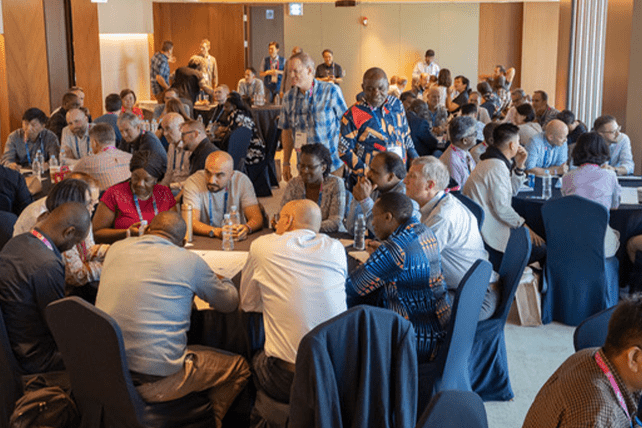Note from Dr. Ed Stetzer: I’m here in Korea at the Lausanne Global Congress. During and after the congress, I am hosting delegates on ChurchLeaders. Today, we have Phillip Miller, pastor of The Moody Church in Chicago.
As the second day of Lausanne 4 draws to a close in Seoul-Incheon (if you missed yesterday’s piece, “A Taste of Heaven,” you can read it here), I want to reflect on the beauty of community I’ve glimpsed through our global brothers and sisters.
In the western world, it’s no secret that we live in a hyper-individualized culture. We tend to think of ourselves as the main character in the drama of our own stories, seeing everyone else as supporting cast. We enter and exit relationships, schools, jobs, clubs, and neighborhoods largely based on what those things have to offer us. We prize independence and autonomy, charting our own course through life.
In much of the world, life is understood very differently. In many cultures, the family and community come first. Individuals are important, but see themselves as enmeshed in a web of vital relationships and social responsibilities. Honoring those familial, societal, and cultural responsibilities is both a privilege and responsibility.
If the late modern West lives for independence, most traditional cultures live for interdependence.
I’m struck by how deeply interdependent Jesus calls us to be as his body, family, temple, and bride. We are not our own, but have been bought with a price (1 Corinthians 6:19-20). We are being built together into a living temple (Ephesians 2:21-22). We are joined together to one another in growing and mutually intertwined body (Ephesians 4:16). We as the people of God are together the redeemed bride of Christ (Ephesians 5:25-27). The New Testament vision for the Church is one of deep mutuality and interdependency.
As a North American steeped in a hyper-individualized culture, I tend to view discipleship largely in terms of my own personal walk with God. I tend to see going to church, bible study, or meeting with Christian friends as tools to help me make progress in my walk with God. It’s mainly Jesus and me.
But as I talk with our global brothers and sisters from around the world, I’m struck by how differently they see discipleship. They see discipleship as a community of people filled with the Spirit learning together what it means to follow the way of Jesus. They see the gathered community as the very heart of discipleship. It’s mainly Jesus and us.
Our global brothers and sisters are quick to point out that traditional cultures often place too much emphasis on family and cultural expectations. They know the cost involved when Jesus says that following him outranks family obligations (Mark 3:31-35). For them, it is the call of individual allegiance to Jesus that confronts their cultural assumptions.
For those of us who swim in the culture of hyper-individualism, it is the call to mutual, interdependent community that confronts our cultural assumptions.
We in the West have much to learn from our brothers and sisters in the Majority World. They see some of our cultural blindspots. They know the beauty of community. The question is whether we’ll be humble enough to listen and learn.

